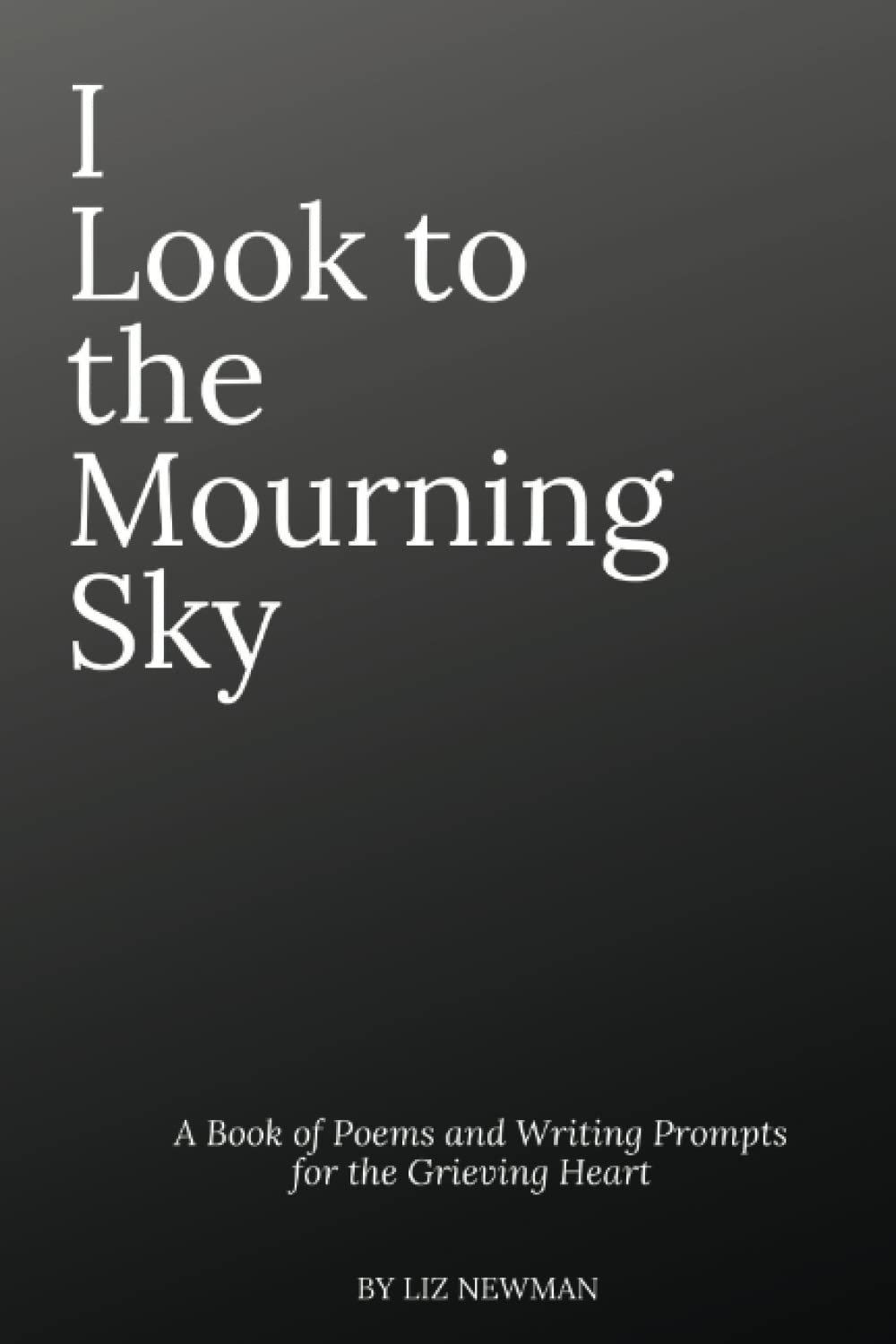
19 Aug Finding Light in Shadows: A Journey Through Grief with ‘I Look To The Mourning Sky’
Exploring Grief Through Words: A Review of I Look To The Mourning Sky
When I first stumbled upon I Look To The Mourning Sky: A Book of Poems and Writing Prompts for the Grieving Heart by the talented author, I felt an immediate connection, as if the universe was nudging me toward this gentle exploration of grief. The title itself evokes such profound imagery, and I couldn’t help but feel a sense of curiosity—how could poetry perhaps illuminate this often-dark journey?
This collection resonates on multiple levels, weaving together the stark reality of loss with the tender hope embedded in poetic expression. I Look To The Mourning Sky captures the first tumultuous year of grieving—a whirlwind of emotions that can feel as isolating as it is overwhelming. The poems delve deep into the intricacies of sorrow, navigating through the relentless storms of sadness, while reminding us we are not alone in our heartache.
What struck me most was the raw honesty in the poems. The author manages to encapsulate the full spectrum of feelings that accompany loss—ranging from despair to nostalgia, anger to acceptance. Each poem offers a safe haven for the reader, allowing them to feel seen, understood, and embraced in their pain. One standout piece reads, “In every shadow cast by the mourning sky, there lies a memory waiting to breathe.” This beautiful sentiment resonated deeply with me; it suggests that amid our sorrow, our loved ones remain a part of us, waiting to be acknowledged.
Interspersed within the poetry are twelve thoughtful writing prompts designed to help readers articulate their own grief. These prompts encourage introspection, inviting individuals to shape their narrative and process their emotions through writing. I appreciated this addition—it transforms the reading experience into a more active engagement, empowering readers, whether they are seasoned writers or those picking up a pen for the first time, to explore their own stories.
The pacing here feels intentional; the collection moves from more intense expressions of grief to moments of contemplation and reflection, creating a healing journey rather than a plodding path. The writing style is approachable yet profound, making it feel as though the author is sitting beside you, sharing personal stories over a cup of tea.
As I closed the book, I found myself holding onto not just the poems, but the spirit of connection they cultivated. It’s a reminder that grief is not linear or uniform; it ebbs and flows, and this collection beautifully reflects that truth. Whether you are grappling with fresh grief or a seasoned heartache, I Look To The Mourning Sky offers solace, understanding, and perhaps even a little catharsis.
I wholeheartedly recommend this book to anyone navigating the complexities of loss or even those who wish to support friends in their grieving. The power of words to heal and connect shines through in every page, offering not just solace but also a reminder of the enduring love that transcends even the deepest sorrow. As I reflect on my own journey through grief, I realize that art—be it poetry or personal writing—has the potential to bridge the chasm created by loss, allowing us to feel less alone in our mourning.
In the world of grief, let I Look To The Mourning Sky be not just a guide, but a companion. You may find that it not only seeks to lend you a voice in your sorrow but also offers a glimpse of healing beneath the mourning sky.









